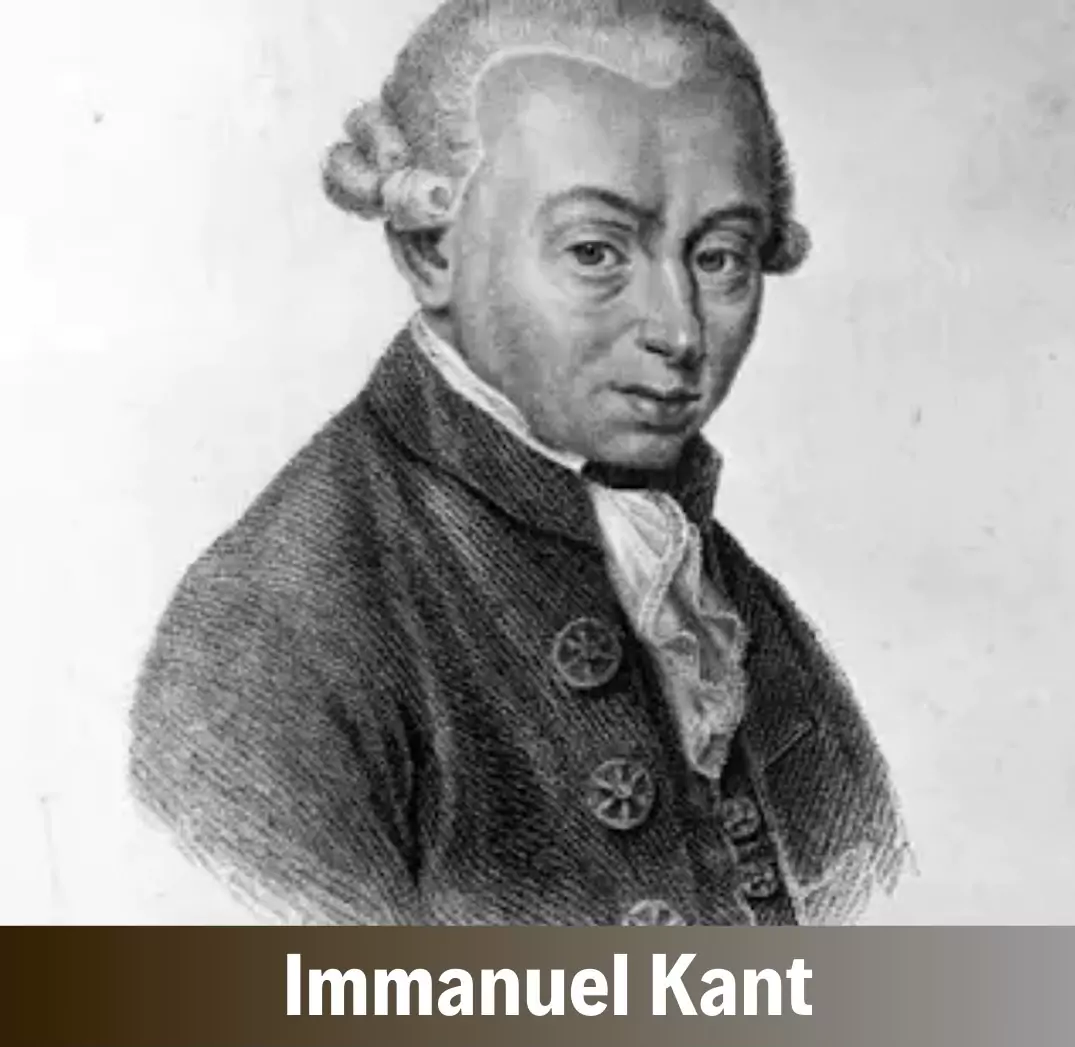Context
The world will celebrate Immanuel Kant (1724-1804) 300th birth anniversary this year.
About Immanuel Kant

Immanuel Kant was born on April 22, 1724 in the East Prussian city of Königsberg, or today’s Kaliningrad (Russia) near the southeastern shore of the Baltic Sea.
- He is the central figure in western modern philosophy, setting the terms for much of 19th and 20th century philosophy and synthesizing early modern rationalism and empiricism.
- Field of work: He has left indelible imprints in the field of metaphysics, epistemology, ethics, political philosophy, aesthetics etc
-
Notable Works of Immanuel Kant:
- The Three Critiques: The Critique of Pure Reason (1781, 1787), the Critique of Practical Reason (1788), and the Critique of the Power of Judgment (1790) presents the fundamental idea of Kant’s “critical philosophy” ie the human autonomy.
- Kant’s work on ethics: It is presented in his book, The Foundations of the Metaphysics of Morals (1785) to “search for and establishment of the supreme principle of morality”.
Enroll now for UPSC Online Course
-
Key Ideas of Immanuel Kant:
- The Idea of a World Citizen: Immanuel Kant favoured the idea of a global citizenship, whereby there is no restriction to travel, The trade is open and free, unrestricted immigration and the right to refuge and rejected imperialism, colonialism and slavery.
- He believed in reason, rationality and morality guiding political action.
- The Idea of perpetual peace: Kant clearly states that perpetual peace is possible only when governments have a specific political organization and the need for the formation of a federation of free countries or international governments to eliminate the tendencies of engaging in war-the worst evil of human societies and achieve perpetual peace.
- Kant’s deontological/ duty based Ethics: Immanuel Kant believes that the moral worth of an action can be judged not by its outcome but, rather by its motive ie. He favors Right Means over Ends.
- The motive behind an action has moral value only when it arises from universal principles discovered by reason.
Relevance of Kant’s Idea in Modern World
- The Crisis in Multilateralism: Major power rivalry driven by narrow consideration of power and authority based on expedient rationale, and not rationality is leading to demise of multilateralism.
- Example: The UN Charter was expected to provide a common ethical bedrock for international relations but instead has become a body to please the self-serving rationale of the permanent members of the UNSC.
- Rationality v/s Rationale: Rationality is to being guided by reason and logic but they are also shaped by history, collective civilisational and cultural experiences, nationalism, religious beliefs, clan and class loyalties etc giving way to rationale, bereft of values or morality.
- Example: Contemporary challenges like terrorism and aggression by nations (Israel- Hamas War) are accepted as truth by rationale explanations behind devastating actions.
- Contemporary Challenges: Today the world is facing a war of narratives that blurs the distinction between reality and fiction whereby reality is often a creation of geopolitical and geo-economic interests.
- Artificial Intelligence and digital revolution altering objective reality and lethal autonomous weapons redefining battlefields. The challenge of fake news, hatred based on identities, global terrorist organisations, The climate crisis etc.
- Remnants of colonialism: Kant rejected imperialism, colonialism and slavery but although colonialism and imperialism are deemed to be a closed chapter in history, but the UN website still lists 17 Non-Self-Governing Territories as the unfinished agenda of the Special Committee on Decolonisation.
- Modern day economic colonialism in the form of debt diplomacy is posing a significant challenge to the independence of nations.
India’s Role
- India should amalgamate Kant’s Western philosophy ideas with our very own ancient philosophies, to provide a new moral compass for a better world.
- India is rediscovering the relevance of its indigenous strategic culture with renewed focus on The great Indian epics (Ramayana and Mahabharata) in the context of statecraft, war and diplomacy through the prism of ethics.
- Indian Philosophers: Kautilya’s Arthashastra and Thiruvalluvar’s Tirukkural dwelt on ethics and morality in every aspect of life.
- Contemporary Amalgamation: India aims to amalgamate its ancient cultural ethos of serving humanity with modern day realities.
- Example: During its G20 Presidency, India built consensus on the basis of the motto, One Earth, One Family, One Future, inspired by the ideal of Vasudhaiva Kutumbakam.
Enroll now for UPSC Online Classes
![]() 24 May 2024
24 May 2024
